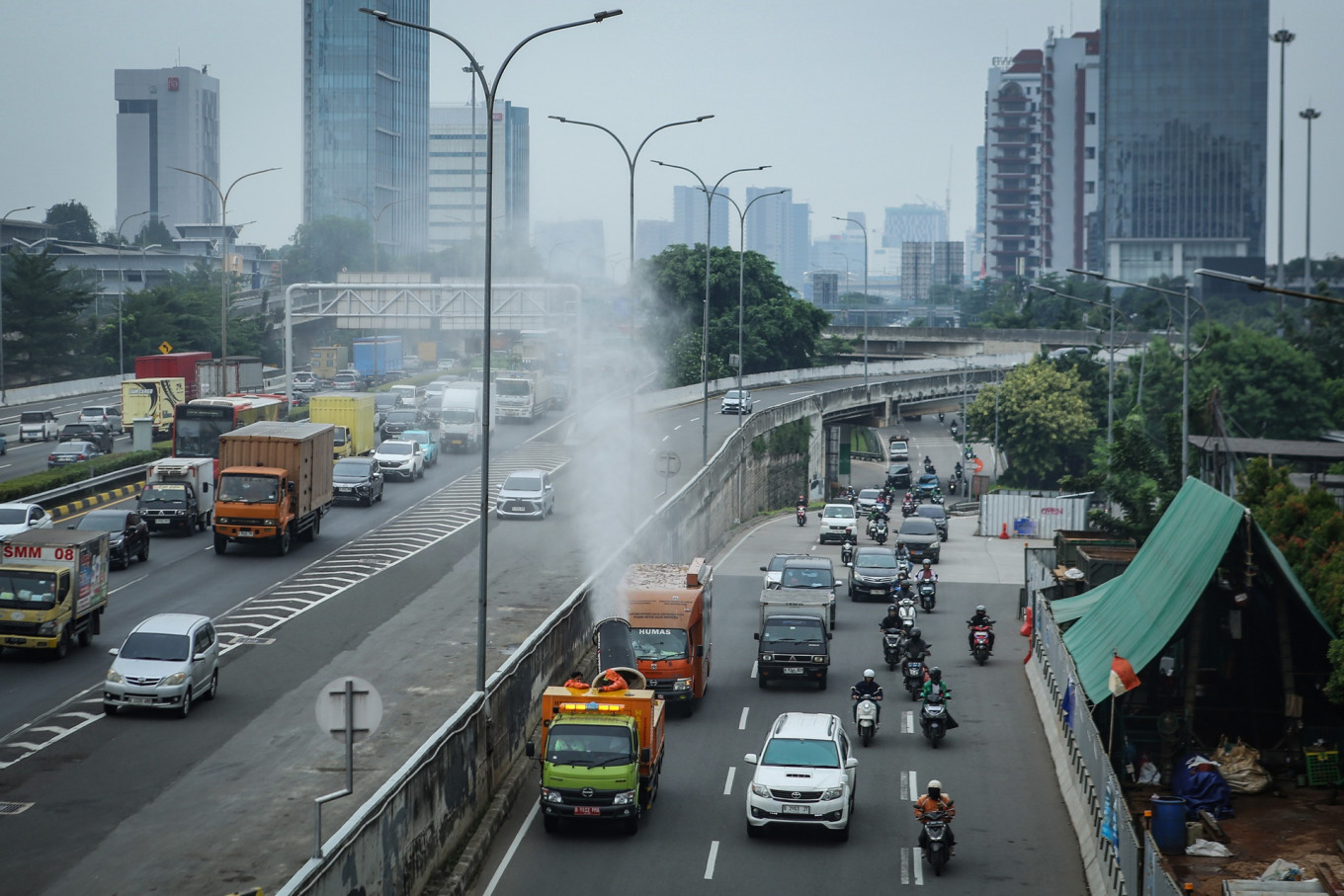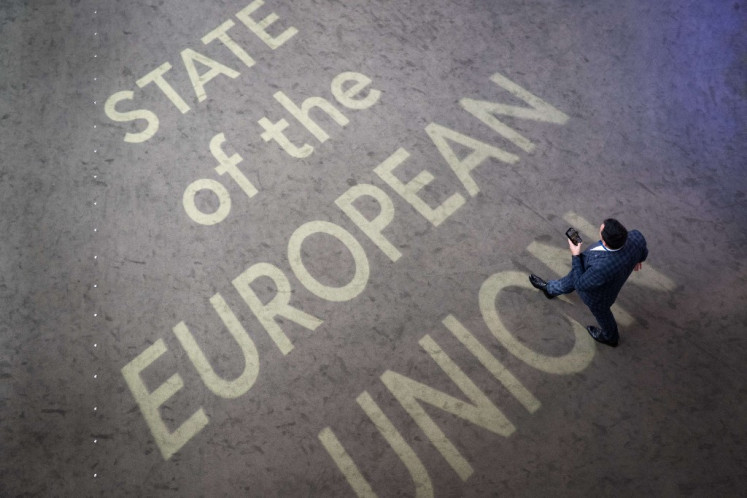Popular Reads
Top Results
Can't find what you're looking for?
View all search resultsPopular Reads
Top Results
Can't find what you're looking for?
View all search resultsJakarta digs deep
The "normal" level of congestion in Greater Jakarta is already worse than in most other major cities, causing at least Rp 100 trillion (US$6 billion) in direct and indirect economic losses per year.
Change text size
Gift Premium Articles
to Anyone
F
orget the “Big Durian”! Jakarta now has a new nickname, albeit a less flattering one: Jakarta Kota Galian (City of Excavation). This moniker comes from frustrated Jakartans who took to social media to vent about traffic congestion exacerbated by widespread digging for utility projects across the city.
Since late last year, public works have affected over 260 kilometers and at least 216 road sections city-wide. One example is Jl. Cikini Raya in Central Jakarta, where a new sewer line section has been under construction for nearly a year, despite prior promises of early completion from the city administration. Another is Jl. TB Simatupang in South Jakarta, which most motorists now avoid because water pipe installation has reduced two lanes to one.
Construction of essential public infrastructure is a must to improve the quality of life of the population. We believe utilities, such as clean water pipes, are vital to support the lives of over 10 million Jakartans. As of late 2023, only 67 percent of residents are covered by the city’s clean water network. The remainder still rely on extracting groundwater, a practice that greatly contributes to the capital’s sinking due to land subsidence.
However, we believe these necessary projects demand better planning and management. Experts have questioned whether the developers behind the work properly mapped out the risks involved, knowing that the projects take place on areas prone to traffic congestion even when construction work is absent. They also cite a lack of transparency and public participation from developers and authorities, preventing residents from understanding the project risks.
This lack of communication has led netizens to question why all these projects need to be executed simultaneously when the city has an entire year to spread them out.
Governor Pramono Anung and his administration must improve their work in planning these projects and communicating the associated risks to the public. Apologizing to the public for the inconvenience caused is not enough. Now is the perfect time to act, before the worsened traffic costs Jakarta even more.
The "normal" level of congestion in Greater Jakarta is already worse than in most other major cities, causing at least Rp 100 trillion (US$6 billion) in direct and indirect economic losses per year, according to a 2019 study by the National Development Planning Agency (Bappenas). Imagine how much higher that bill is now, with traffic compounded by these utility projects.
This whole brouhaha also reflects the cost of Jakarta being a car-dependent city. Jakartans rely so heavily on motorized vehicles that when roads are disrupted, whether by public works or even flood-causing rains, the city plunges into complete gridlock for hours, costing people their money, time and energy.
Jakarta government should view this recent chain of events, triggered by rampant public works, as a wake-up call to shift its paradigm from car-dependency to one that favors public transit, pedestrians and non-motorized road users, as other ASEAN cities like Singapore and Bangkok have done.
Surely such a shift would burden residents with years of traffic disruption, just as occurred on Jl. Fatmawati in South Jakarta for about three years during the construction of the first Jakarta MRT line. But people might not mind paying that price, provided they are informed and offered viable alternatives to endure the sacrifice they are making.
Megacities like Jakarta will never stop building themselves. And just as American author O. Henry once commented on the non-stop construction in New York City, this city will "be a great place if they ever finish it."
Jakarta can also be a great place once all the utility work is finished. But infrastructure projects should not stop the city from being a great place, one that informs its residents and offers alternatives to mitigate the woes created by all the public works.











